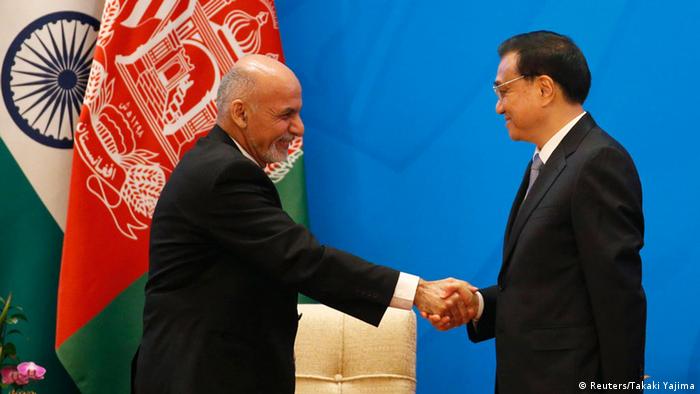Frank Sieren
The newly burgeoning relationship between China and Afghanistan is of mutual benefit, says DW columnist Frank Sieren.
If you want to see who is Afghanistan’s new friend, all you have to do is look at the new president’s travel schedule. Ashraf Ghani had hardly been in office for a month when he took off on his first foreign visit. Where did he go? To China of course - which is, politically and economically, the strongest of Afghanistan’s neighbors. The Chinese leader and Party boss Xi Jinping received the Afghan president in Beijing last week. And not only was it Ghani’s first state visit, his final day in Beijing happened to coincide with the opening day of the Istanbul Process 2014.
This was China’s first time as host for the coming together of 14 Asian states, including Afghanistan, Azerbaijan, China, India, Iran, Kazakhstan, Kyrgyzistan, Pakistan, Russia, Saudi Arabia, Tajikistan, Turkey, Turkmenistan and United Arab Emirates. China has fostered close ties to Pakistan for decades. Now it is building a friendship with Afghanistan. The country is simply too strategically important for China to ignore. It is indeed of such significance that in the 19th century, the British tried to bring the divided land under their control, followed by the Russians in the 20th century and the Americans and NATO in the 21st.
So Far Unsuccessful
China, however, is not planning to control Afghanistan by military means. Beijing’s strategy is one of economic cooperation. While Western firms have neither the political back-up, the money, nor the economic interest, Chinese companies have no such problems and are slated to move into Afghanistan.
But they do have others. In 2007, Beijing paid $3 billion for a copper mine outside Kabul. This needled the Americans, who then began to support archaeological excavations on the site with millions of US dollars. Lack of infrastructure and Taliban attacks also took their toll on the project. As recently as September, another Chinese delegation came by for a visit. A date for when they can get started with the extraction of copper has yet to be arranged.
Another Chinese raw materials project which has had a bit of a bumpy ride is on the border to Turkmenistan. The Chinese Petro-chemical company CNPC has begun extracting oil in the Amu Darya oil field. Disputes about costs between Afghan authorities and Chinese sub-contractors, as well as antiquated equipment, have led to a standstill here, too. Additionally, China would like to build infrastructure in Afghanistan in order to realize the dream of a new Silk Road. Afghanistan could then be at a crossroads between China and its partners further west including Iran. ‘Could’, though, is the operative word: this project too is more theory than practice.
Shared interest
But there is another reason why Beijing remains so undeterred that it recently even earmarked a further $3 million for investment in the country. On the one hand, China - in time-honored fashion - is attempting to secure access to raw materials. But when it comes to Afghanistan, Beijing is also pursuing other interests. With "Islamic State" militants declaring their intention to liberate the autonomous region of Xinjiang, the urgency of maintaining stability in Afghanistan is greater than ever. Not least because Beijing believes that the terrorists who have been active in Xinjiang in the past hailed from eastern Afghanistan.
Afghanistan itself could also benefit from a closer cooperation with Beijing, which would help it banish the specter of the Taliban. The Chinese have long nurtered a friendship with Pakistan, a bastion of the Taliban. A closer friendship between Kabul and Beijing boost the likelihood of constructive talks between Kabul and Islamabad on how to tackle the threat of the Taliban.


No comments:
Post a Comment